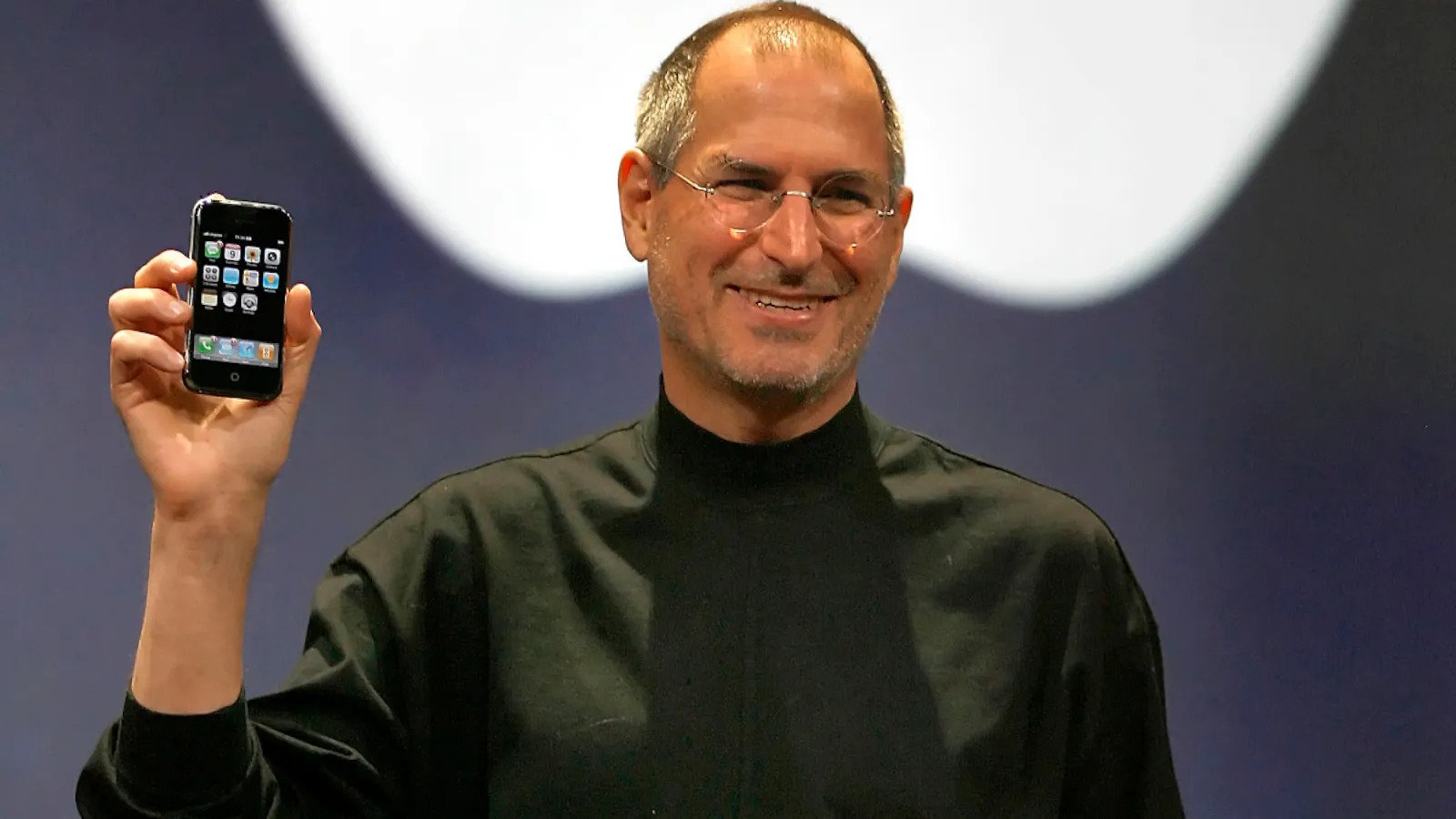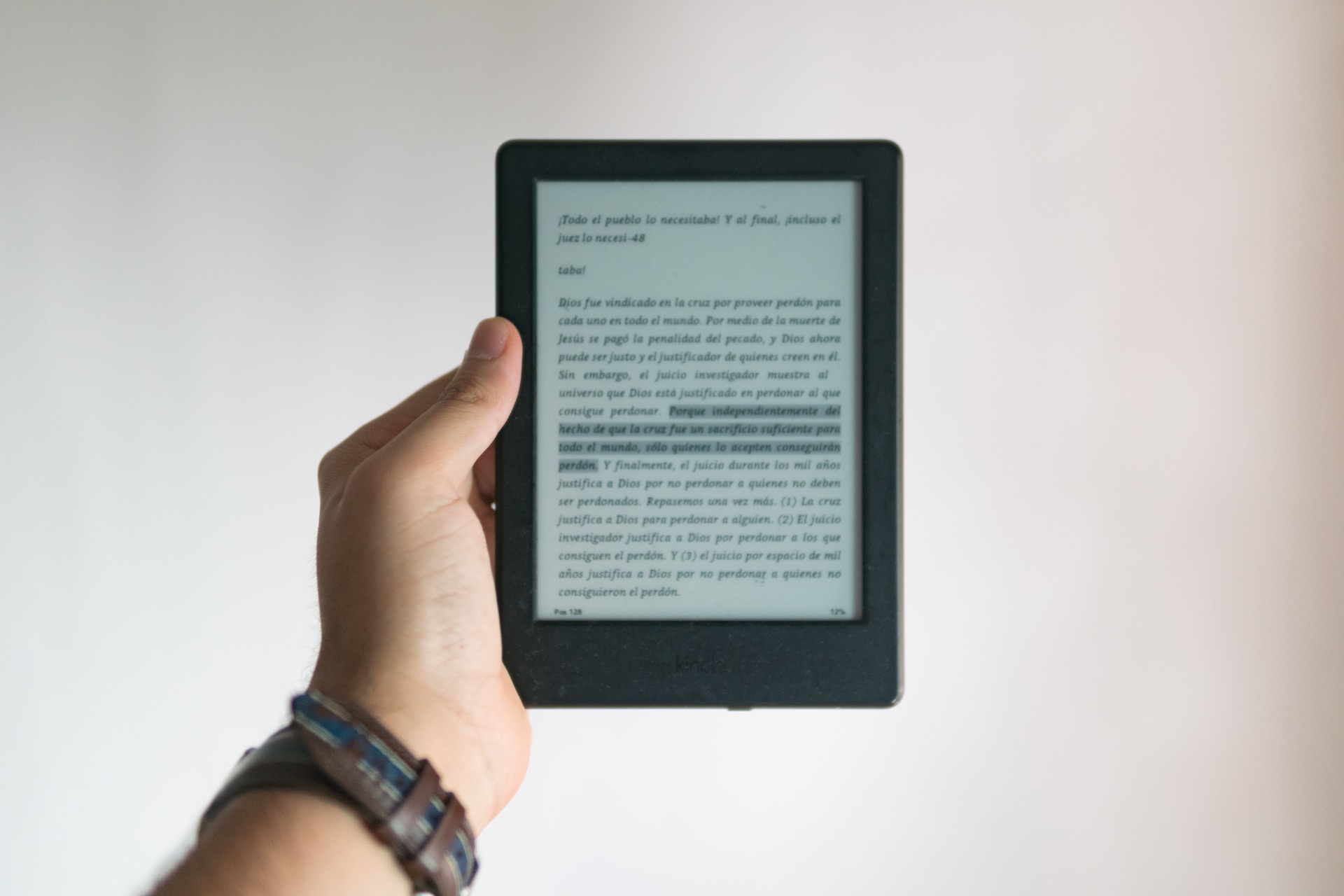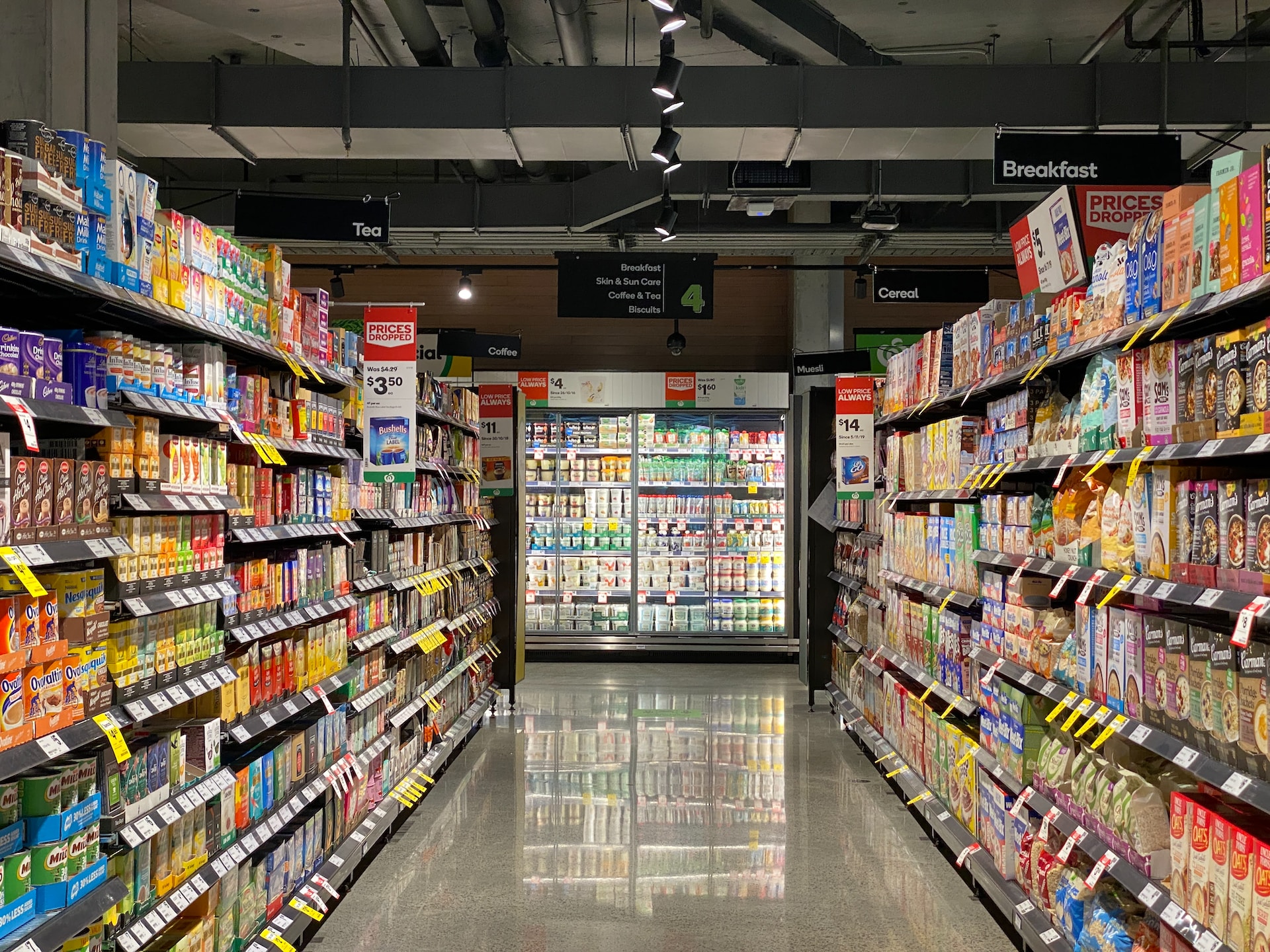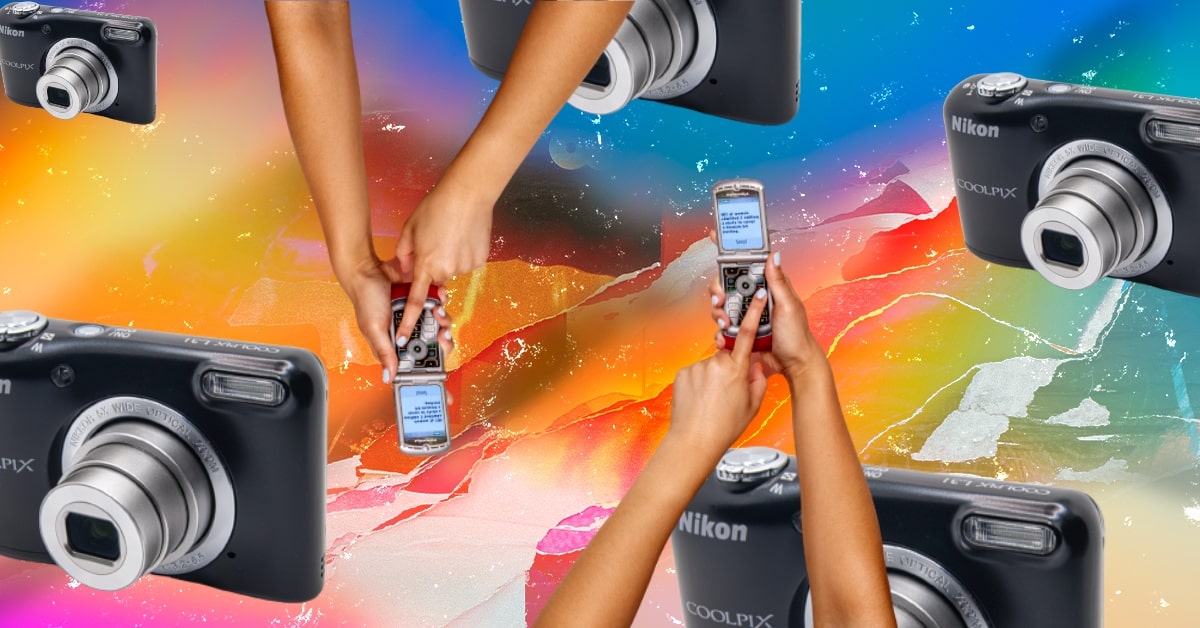Technology used to have a very distinctive “look”. Remember all those cloudy blue skies, water bubbles, and random fish that lived on our computer screens? That singular aesthetic is known as Frutiger Aero and was the “[dominant] tech aesthetic between 2005 and 2013” being the standard of Microsoft, Apple and Nintendo.

This graphic style became the default for new technology launched during this period. Apparently it sought to convey the “optimistic utopia” that new technology would push us towards, a future of large-scale technological adoption that would lead society towards the promised land. And there you were thinking it was just some nice colourful fields.
Being the gluttons for nostalgia that we are, it’s back. Along with noughties dress sense and digital cameras under our Christmas trees. So some of the biggest trends of 2023 are actually the trends of 2007. Retro is on the rise.
In what now feels like a canonical event in contemporary human history, on January 9th 2007 Steve Jobs took to the stage at Macworld Expo in San Francisco and announced the launch of the first generation iPhone. In his 80 minute presentation, Jobs famously described the iPhone as a “revolutionary product that [will] come along…and change everything.’ Not only were his words largely true, but they also seem an apt representation of the new vision technology was to have in our lives.

Aside from the iPhone, 2007 saw the launch of Airbnb, The Kindle, Twitter, as well as the global adoption of Facebook. All of which changed and improved our lives in material ways, from our travel habits to the ways we communicate with our friends.
As expected, there was backlash to this tide of technology. In an article in the Independent from 2008, a columnist bemoans the rise of the SatNav fearing the navigation device would result in the erasure of our sense of direction, the “human right to get lost” and the A-Z map. Whilst physical maps never really came back into the mainstream, it’s worth exploring whether other parts of our “physical” society met the same fate against their tech challenger.
The Book v The E-Reader
In 2007, in line with the launch of the Kindle or Book 2.0 as it was referred to, Jeff Bezos described the physical book as the “the last bastion of analog” and grandly proclaimed that the Kindle was to “change the way people read.” And four years later, it seemed that his prophecy had come true, with Amazon selling more digital books than hardcover books for the time in its history.
So skipping to the last page, the Kindle ended up killing off the book, right? Actually the numbers give a very different reading. In 2022, the UK publishing industry reported a record-breaking year, with the “analog” book doing better than ever.
So, what changed, and why are we returning to paper pages? Well, perhaps with more-and-more research being done on the harmful impacts of screen-time and fears of being “terminally online” reading has become a welcome break from the screen. Ironically, one of the Kindle’s main selling points (access to the internet), might now actually be putting readers off.

The Self-Checkout v The Cashier
The first self-checkout was invented in 1986 in Florida by David Humble. However, it wasn’t really until the late 90s that automated checkouts took off with 200,000 self-checkouts reported in stores across the world by 2013. On the surface, self-checkouts provided a number of benefits: they were faster, more efficient, and didn’t take sick days, with a 2004 survey finding consumers ordered more when they didn’t feel “judged by a person behind the register.”
Despite these advantages, supermarket chain Booths last month announced that they were replacing all their self-service tills with shop assistants again. They cited the increase in theft and merchandise-loss associated with self checkouts.
Further to this, author Van Badham points to the sense of community that supermarkets present to customers, particularly the elderly. As the self-checkout is largely a solitary experience, it comes as no surprise to see retailers in Holland trialling initiatives such as “Kletskassa’s” or “chat checkouts, ” giving customers the option to chat to their cashier should they wish.

The Camera v The Smartphone
Admittedly this comparison doesn’t quite follow the previous two, with the camera and smartphone being examples of tech in their own right. However, with modern iterations of the smartphones boasting similar specs and picture quality to standalone cameras, why is it that young people are flocking back to the cameras of yesteryear?
One reason, as photographer Scott Ewart suggests, is there’s a degree of comfort and simplicity within the older style of camera. Not only do lower resolution / lower quality images connote a sense of warmth and nostalgia, the very act of using a sole-purpose camera allows the user to appreciate photography for what it is: the capturing of a cherished moment.

Technology has its obvious benefits. However, since COVID, it has increasingly become a necessity rather than a choice. And with growing criticism of tech companies for their data breaches and large carbon footprints. It feels like the tide is turning against the ideological view of the late 2000s. Tony Fadell, a former Senior Vice President of Apple, even said it himself:
We just thought [the iPhone] was going to be a fun, easy to use thing when you want to do a few messages. [We] didn’t think it was going to become the centre of your life.
In a society where we are constantly reminded of the detrimental impacts of the overconsumption of media, we are becoming increasingly selective about how and when we choose to connect. We may never have reached the promised land of the mid 2000’s technological paradise. Or maybe we’re already living in it, and it hasn’t turned out to be the utopia we imagined.